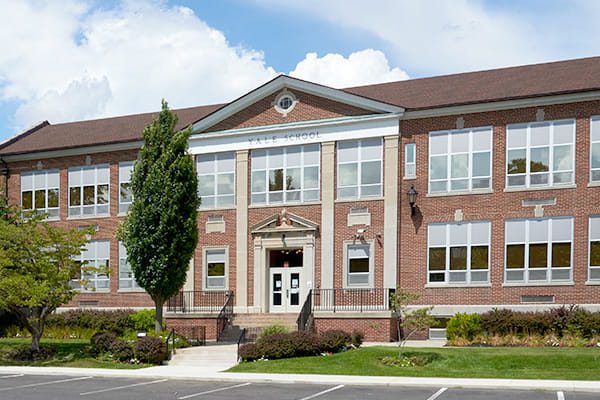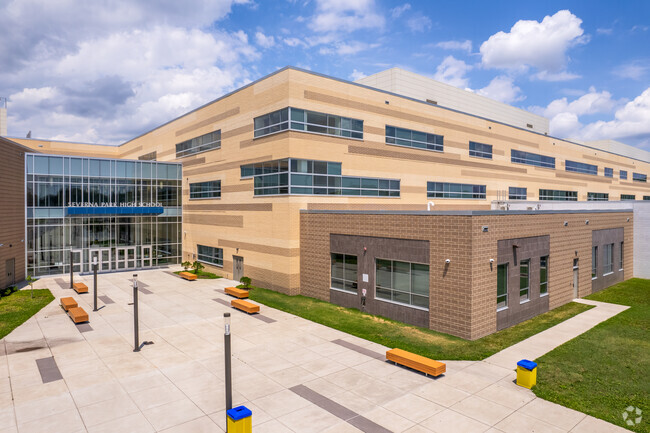Join the Activity to Save Temecula Schools: Area Activity Needed!
Wiki Article
Recognizing the Significance of Colleges in Youngster Growth and Community Growth
Schools work as critical institutions for youngster development and area growth, providing atmospheres where academic success are matched by the farming of social abilities and direct exposure to varied perspectives. These academic setups not only promote vital thinking and effective communication but also foster empathy via collective tasks. Schools' involvement with regional neighborhoods through service-learning efforts enhances the bond in between families and instructional establishments. This symbiotic connection emphasizes the importance of schools in nurturing active citizenship and lifelong understanding habits. However, what are the details systems through which these organizations accomplish such extensive influences?Academic Success
Academic accomplishment offers as a keystone of child advancement, providing the foundation upon which future understanding and success are built. Schools play an essential function in cultivating this academic development, using organized atmospheres where children can obtain important expertise and cognitive abilities. Standard educational program make certain that trainees gain effectiveness in core topics such as maths, scientific research, and language arts, which are important for both college and expert opportunities.Along with giving fundamental academic skills, colleges also cultivate critical reasoning, analytical capabilities, and intellectual curiosity. These cognitive proficiencies are vital for navigating intricate real-world circumstances and adapting to the ever-evolving demands of the contemporary workplace. Teachers, as facilitators of understanding, utilize varied instructional strategies to deal with diverse understanding styles, therefore maximizing private trainee possibility.
Moreover, scholastic success is closely linked to self-worth and motivation. Youngsters that experience scholastic success are extra most likely to develop a positive self-concept and a long-lasting passion for discovering. Institutions additionally provide different sources, such as libraries and technology, which better improve the educational experience and prepare students for a technologically innovative culture.
Social Skill Advancement
Beyond scholastic accomplishment, the function of colleges in social skill development is indispensable. Schools serve as a primary place for youngsters to find out and exercise important social skills such as teamwork, communication, and dispute resolution. In the organized environment of a classroom, trainees interact with peers, teachers, and various other college team, providing numerous opportunities to create these vital capabilities.Effective social ability development in institutions is facilitated through team tasks, collaborative tasks, and extracurricular programs. These communications help trainees understand social standards, build empathy, and cultivate a feeling of neighborhood. For circumstances, team tasks instruct trainees just how to collaborate in the direction of a common goal, pay attention to different perspectives, and browse arguments constructively.

The cultivation of social skills during academic year lays a structure for future individual and professional partnerships. Save Temecula Schools. As pupils grow, the capability to efficiently interact and work together ends up being increasingly crucial, highlighting the school's important function in alternative kid growth
Exposure to Diversity
Exposure to variety in schools is fundamental to cultivating an inclusive way of thinking and broadening trainees' point of views. Schools act as a microcosm of the wider culture, and experiencing diverse societies, languages, and socioeconomic backgrounds within this setting outfits trainees with crucial skills for browsing an increasingly globalized world. This exposure encourages compassion, reduces prejudices, and advertises mutual regard among peers.Study shows that pupils that engage with peers from diverse backgrounds display much better analytic abilities and creativity. This understanding of variety prepares trainees for future offices that worth modern capability - Save Temecula Schools.

Area Interaction
The advantages of her latest blog varied classrooms extend past the school walls, promoting a solid feeling of area engagement among trainees. By interacting with peers from different social, socioeconomic, and ethnic histories, students gain a wider point of view and an appreciation for diversity. This direct exposure urges them to come to be active citizens that are ready to contribute positively to their communities.Institutions that highlight area interaction usually integrate service-learning projects, which enable pupils to address real-world issues while applying academic abilities. These projects not just boost trainees' understanding of their coursework however also infuse a feeling of duty and empathy. Partnerships between schools and local organizations give pupils with opportunities to participate in area occasions, further strengthening their function as proactive area participants - Save Temecula Schools.
Furthermore, parental and neighborhood participation in colleges strengthens the bond in between universities and the areas they offer. They produce a collaborative atmosphere that profits all stakeholders when colleges open their doors to neighborhood occasions, workshops, and volunteer chances. This shared support system makes sure that pupils receive holistic advancement, preparing them to end up being well-shaped people that value and contribute to their neighborhoods. Via these efforts, institutions play an essential function in supporting community engagement and promoting societal development.
Lifelong Knowing Habits
Creating long-lasting knowing behaviors is crucial for a child's constant growth and versatility in an ever-changing globe. Schools play a pivotal function in instilling these practices by developing an environment that promotes curiosity, essential thinking, and a love for expertise. Via varied curricula and after-school activities, teachers urge trainees to discover various topics, view it now analyze details critically, and use their finding out to real-world circumstances.
In addition, institutions supply a structured setting where children can establish self-control and time monitoring abilities, both of which are vital for continuous knowing. By highlighting the relevance of establishing goals, showing on progression, and adapting techniques, schools prepare trainees to navigate the intricacies of grown-up life, guaranteeing they continue to be lifelong students and factors to culture.
Verdict
Finally, colleges are necessary in cultivating youngster growth and community development by offering atmospheres for scholastic accomplishment, social ability advancement, and direct exposure to variety. Via joint tasks and interactions, colleges boost critical reasoning, compassion, and interaction abilities. Community engagement initiatives further strengthen the bond in between schools and local communities. Ultimately, schools cultivate long-lasting discovering routines, outfitting people with the essential expertise and abilities to contribute favorably to culture.In the organized atmosphere of a class, students connect with peers, instructors, and other college staff, using numerous chances to establish these crucial capacities.
In essence, exposure to variety within schools not only enriches private pupils this website but likewise reinforces the social fabric of the community as a whole.
The advantages of varied classrooms prolong past the college wall surfaces, cultivating a solid sense of neighborhood involvement amongst trainees.Colleges that stress community interaction commonly incorporate service-learning jobs, which permit students to address real-world problems while using academic skills. Partnerships between colleges and regional organizations offer students with chances to get involved in neighborhood events, additionally strengthening their duty as aggressive area members.
Report this wiki page